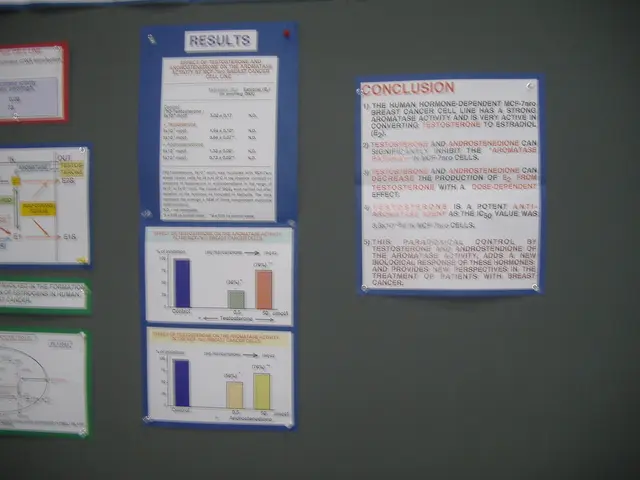Nootropics' Potential Impact on Enhancing Listening Skills
The Ability to Listen Effectively: Can Nootropics Be the Key?
As the importance of good listening skills becomes more prominent in various settings, from classrooms to business meetings, and personal relationships, a new question arises: can nootropics, or smart drugs, enhance this essential capacity?
Nootropics, often referred to as cognitive enhancers, are substances believed to boost brain performance. They can be natural – like caffeine, ginkgo biloba, and omega-3 fatty acids – or synthetic, such as modafinil and racetams, created in laboratories and requiring prescriptions or professional supervision.
To understand how nootropics may contribute to better listening skills, it is essential to delve into their mechanisms of action.
Nootropics and Cognitive Functions
Listening is more than just hearing sounds; it involves several cognitive functions, such as attention, memory, processing speed, and comprehension. Nootropics have the potential to influence these functions, which are vital for effective listening.
Enhancing Attention and Focus
Traditional nootropics, like caffeine, exert a strong influence on focus by stimulating the central nervous system, increasing alertness, and enabling better absorption of spoken information. Other natural nootropics, such as ginseng and Rhodiola rosea, are known for their attention-enhancing properties, making the task of active listening more manageable.
Improving Memory and Auditory Processing
Nootropics like Bacopa monnieri and piracetam are purported to support memory function, facilitating the accurate retention and recall of discussions and details. Enhanced memory enables listeners to comprehend complex conversations and stay engaged.
Supporting Mental Clarity and Processing Speed
Nootropics like L-theanine help boost mental clarity and speed, allowing listeners to process information more efficiently. This escape velocity improves understanding and fosters more incisive responses, crucial elements of effective listening.
Exploring Realistic Expectations
While the potential benefits of nootropics for listening skills invoke curiosity, it is essential to keep expectations in check. Results may vary depending on the user and the specific nootropic, and the substances themselves are not miracle workers. A balanced lifestyle, including regular sleep, a healthy diet, and effective stress management, also plays a significant role in cognitive performance.
Ethics and Safety Considerations
When contemplating the use of nootropics, it is crucial to approach the subject responsibly. Many nootropics have not been thoroughly researched, and their effects can be unpredictable, particularly the synthetic varieties. It is wise to consult with a healthcare provider before incorporating nootropics into your routine, so they can provide guidance on safe choices and proper dosages tailored to your individual needs.
In conclusion, while nootropics offer a promising realm for cognitive enhancement, they are best viewed as potential aids rather than fixes for improving essential skills like active listening. By understanding how they work and setting realistic expectations, users may find beneficial impacts on their listening abilities and communication.
- Active listening, essential in various scenarios, is drawing attention as a potential area for nootropic enhancement.
- Nootropics, believed to boost brain performance, can be naturally sourced, like caffeine and omega-3 fatty acids, or lab-created, such as modafinil and racetams.
- To harness nootropics' potential for better listening skills, exploring their mechanisms of action is crucial.
- Listening involves attention, memory, processing speed, and comprehension, and nootropics may influence these functions for improved listening.
- Nootropics like caffeine stimulate focus, enabling better absorption of spoken information, and ginseng and Rhodiola rosea are known for attention-enhancing properties.
- Bacopa monnieri and piracetam, nootropics, are touted for their memory-supporting benefits, aiding in the accurate retention and recall of discussions.
- L-theanine, a nootropic, boosts mental clarity and speed, allowing for more efficient information processing, crucial for effective listening.
- While nootropics may show promise for listening skills enhancement, results may vary, depending on the user and the specific nootropic.
- A healthy lifestyle, including regular sleep, a balanced diet, and effective stress management, also significantly impacts cognitive performance.
- Approaching the use of nootropics responsibly is essential, as many remain under-researched, and their effects can be unpredictable, particularly the synthetic varieties.
- Consulting a healthcare provider before incorporating nootropics into your routine ensures guidance on safe choices and proper dosages tailored to your individual needs.







